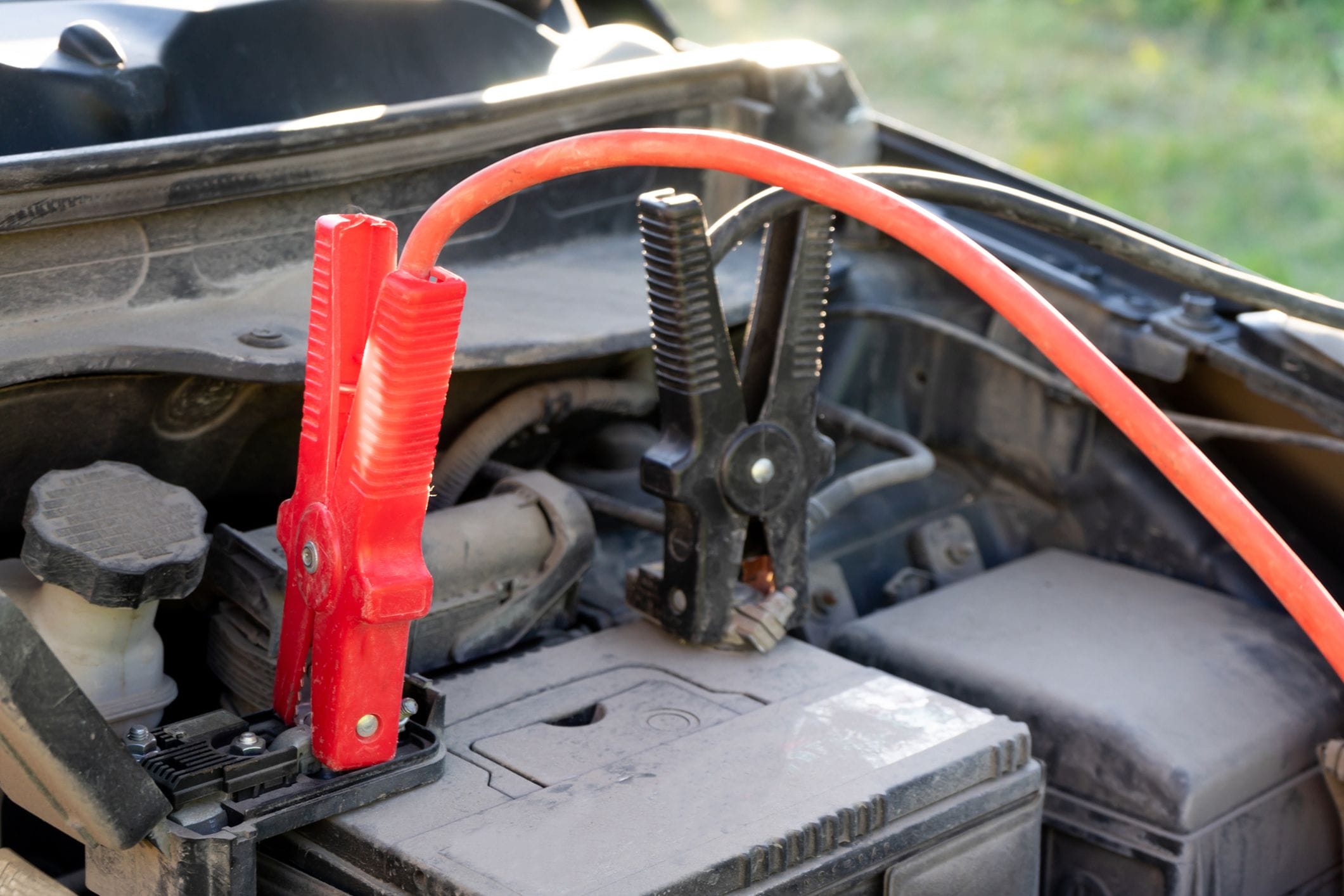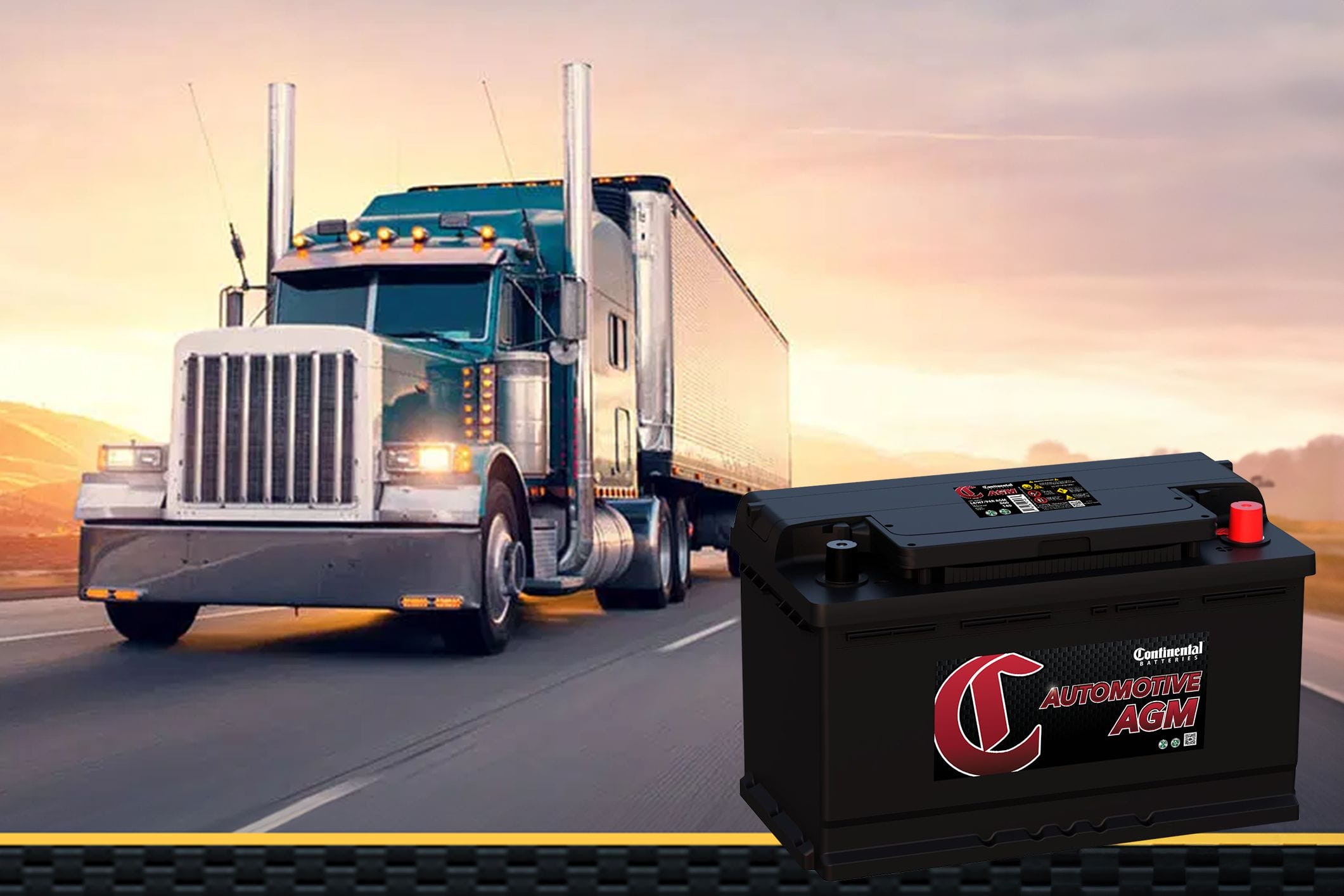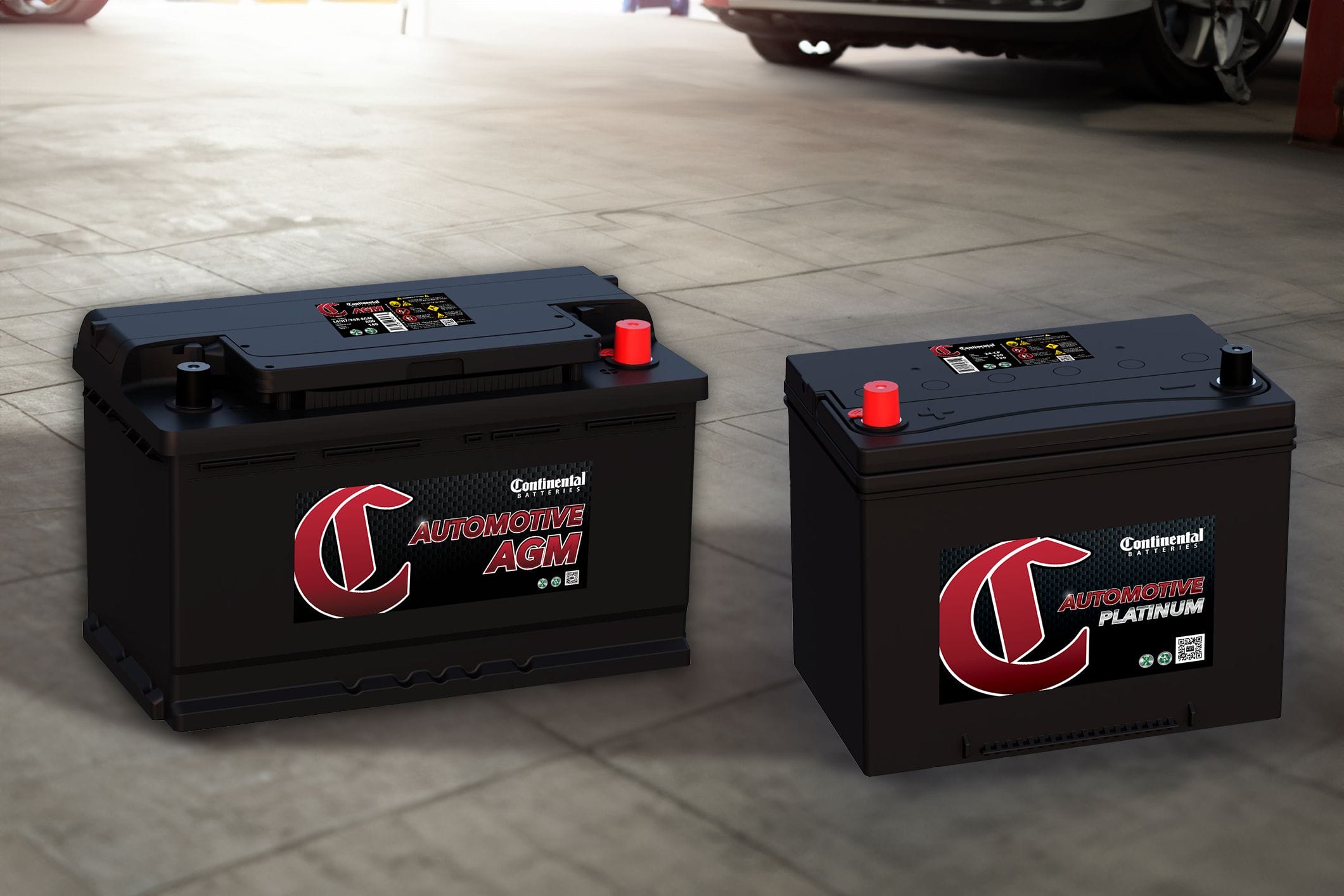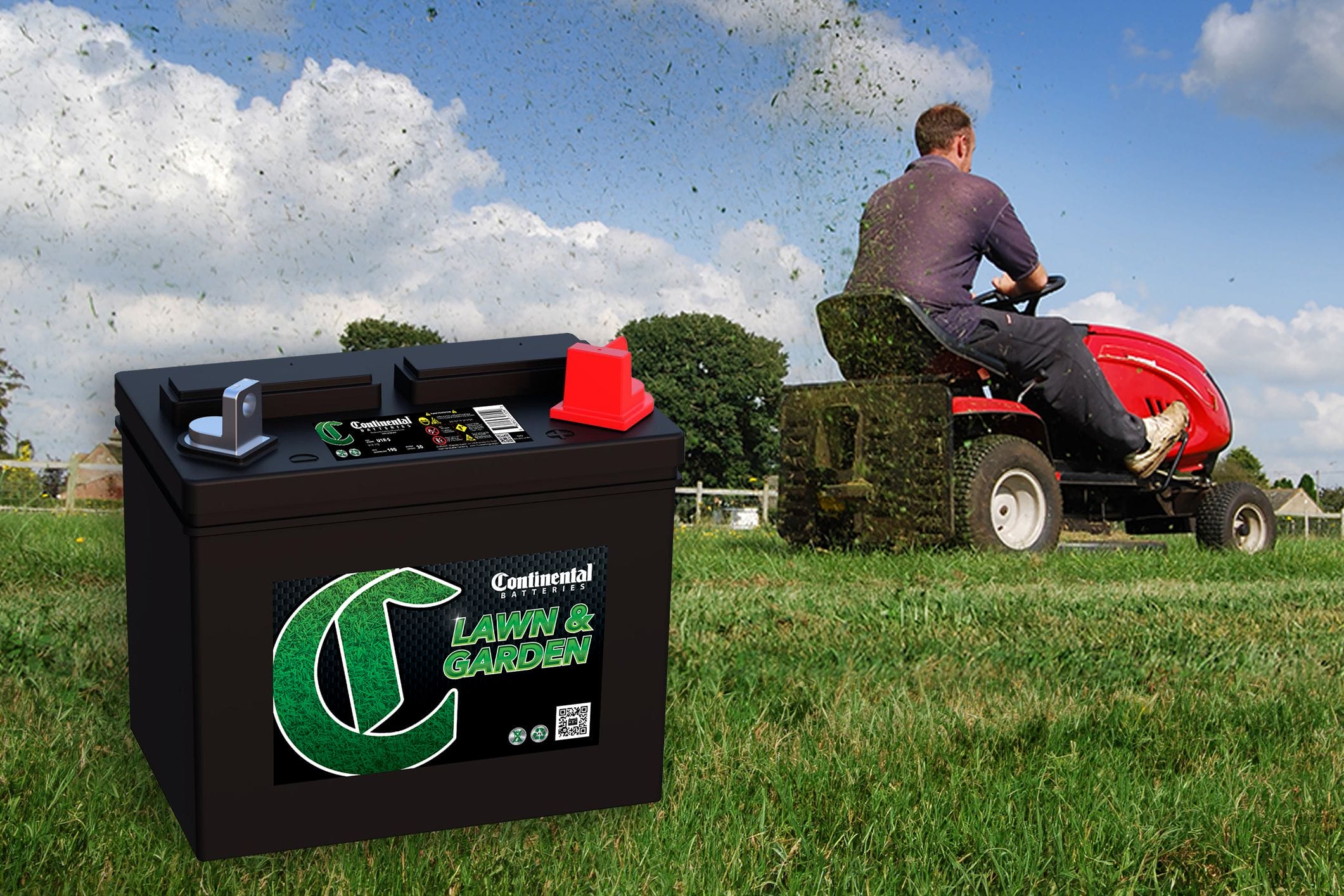
Commercial truck drivers spend a lot of time on the road, and that means they need heavy-duty batteries with the right specs to get from point A to point B to point C, and so on. But it’s more than just making it to the next delivery stop with all of the cargo intact — drivers need to be able to rely on their trucks to keep them safe.
Features like backup cameras, lane departure warnings and blind-spot monitoring devices can all help improve driver safety. But if the vehicle’s commercial truck battery is faulty or on the fritz, it limits how these advanced safety features work, putting both the driver and others on the road at risk of a collision.
Here’s why all aspects of commercial truck batteries — from choosing the right battery specs to maintaining the battery between drives — are crucial to safety.
How Batteries Impact Commercial Truck Driver Safety
Commercial trucks are large vehicles that need batteries powerful enough to handle heavy loads. The batteries need to supply enough power to start a heavy vehicle like a commercial truck and keep it running, whether rolling down the road or idling at a rest stop.
But, like any battery, heavy-duty truck batteries have vulnerabilities to discharging, overcharging and even extreme weather. If the battery dies, not only are truck drivers stranded until help arrives, but they can also lose money on disrupted delivery schedules.
Further, what happens if the battery dies while the driver is on the road? If the battery is weak, it may struggle to provide enough power for some of the electronic features on the vehicle. That could kick safety features like alerts, monitoring devices and other sensors offline, making the truck driver and other drivers on the road vulnerable to an accident.
Commercial Truck Batteries vs. Automotive Batteries
Commercial truck batteries and automotive batteries both run on a 12-volt system. But unlike a personal car, commercial trucks typically run on two, three or even four batteries. Commercial trucks contain two parallel-joined batteries for enhanced safety to protect the vehicle’s electrical systems.
One of the major differences between these two battery types is size and weight. Commercial trucks typically spend all day on the road for days at a time, and the vehicle may also run overnight if it has a sleeper cab. That means commercial truck batteries need to be larger to have enough room for the thicker lead plates inside that can supply more power.
How much does a commercial truck battery weigh? It can vary, with standard flooded batteries weighing around 70 to 100 pounds each, while lithium-ion battery packs for trucks may weigh significantly more. By comparison, automotive batteries weigh about 30 to 60 pounds.
Choosing Specs for Heavy-Duty Commercial Truck Batteries
Choosing the right heavy-duty truck batteries is essential for commercial truck safety. From ensuring the vehicle starts up in the cold weather to maintaining the vehicle’s electrical system even when the battery is dying, it’s important to keep these specs in mind when choosing commercial truck batteries. If you choose a battery that isn’t compatible with your truck, it could mean the vehicle will struggle to start in cold weather — if it starts at all — or the battery may need frequent jumping to get the truck on the road. The battery may also fail completely, requiring you to buy a new battery, one with the right specs to fit your truck’s needs.
CCAs. Cold Cranking Amps, or CCAs, refers to a battery’s ability to start in cold weather. This rating measures the amount of amps the battery will sustain for 30 seconds at 0 degrees Fahrenheit. It’s best to follow the CCA recommendations on the original equipment (OE) specifications of the vehicle, but most heavy-duty commercial trucks will need a battery with around 800 to 1,000 CCAs.
Amp-hours. The amp-hours, or Ah, rating for batteries measures the battery capacity by how many amps the battery can deliver per hour. For heavy-duty vehicles, Ah may be around 90 to 200.
Reserve capacity (RC). This rating, measured in minutes, refers to how long the battery can supply 25 amps at 80 degrees Fahrenheit before the 12-volt system drops to 10.5 volts. This measurement is important for semi trucks because a higher RC battery can keep electrical systems running for longer, even if the battery dies. Commercial truck RC ratings may range from around 45 to 470.
Weight. One thing to keep in mind is battery weight. Semi-trucks must weigh no more than 80,000 pounds, including the weight of any cargo, vehicle parts, and batteries. Vehicles over 80,000 pounds become dangerous on the road, as the heavier weight makes it even more challenging to maneuver the truck. So, when drivers consider what commercial truck batteries to install in their vehicles, they may want to factor in weight, especially if they expect to carry heavy cargo loads.
Maintaining a Commercial Truck Battery
Once a truck is outfitted with the right batteries for optimal performance, maintaining that performance and extending the battery lifespan will depend on regular maintenance. To maintain commercial truck batteries:
Test batteries regularly. Semi-trucks should undergo preventive maintenance every 30,000 miles or at least every six months. This process involves changing the oil, replacing filters, checking the tires and testing the batteries. The test reading should be about 12.5 to 14.2 volts. If a battery falls below a 12-volt reading on a battery tester, it’s time for a replacement.
Minimize extreme weather exposure. It’s not always possible, but drivers should try to park commercial trucks in a covered space. High temperatures can prematurely age the battery. In cold temperatures, keeping the truck parked in a climate-controlled space or even near a warm building can help minimize the amount of charge the battery loses from cold exposure.
Clean the battery. Corrosion can naturally build up on battery terminals and can weaken the battery's performance. Clean battery terminals every three to six months using a commercial battery cleaning product or a paste made from baking soda and water, then dry thoroughly.
Water if needed. If the semi-truck battery is a flooded lead acid battery, it will require refilling the electrolyte level. To do this, add distilled water to the battery until it just covers the lead plates inside. Battery watering frequency will vary based on usage but plan to water about once per week. Maintenance-free batteries won’t require refilling.
Recharge the battery. Fortunately, driving long distances — common for heavy-duty trucks — helps recharge the battery via the alternator. But if a battery test reveals a reading of around 12.4, the battery needs recharging. Use a battery charger and follow the manufacturer's instructions to charge the semi-truck batteries properly.
How Long Do Semi Truck Batteries Last, and When Should I Replace Them?
Semi-truck batteries will last about three to five years. If even just one of the batteries starts dying, it’s best to replace them all. One bad battery could impact the whole bunch, and drivers don’t want to risk being stuck on the side of the highway when a delivery deadline is looming.
Aside from age, drivers should consider battery replacements when the engine struggles to start, the battery needs frequent recharging or jumpstarts or the electrical components on the vehicle aren’t working as usual. For instance, lost settings on a radio or dim lights may be signs of a weak battery.
Stay Safe on the Road With the Right Commercial Truck Batteries
High-performing batteries are an important part of keeping commercial vehicles on the road. Weak or dead batteries don’t just delay deliveries and cost money; they can also prevent an idling truck from getting back on the road, keep a semi from starting up on a cold day, or even limit the effectiveness of electronic safety features. If your commercial truck batteries are aging or showing signs of a dying battery, it’s time to upgrade to new, safe batteries today.







